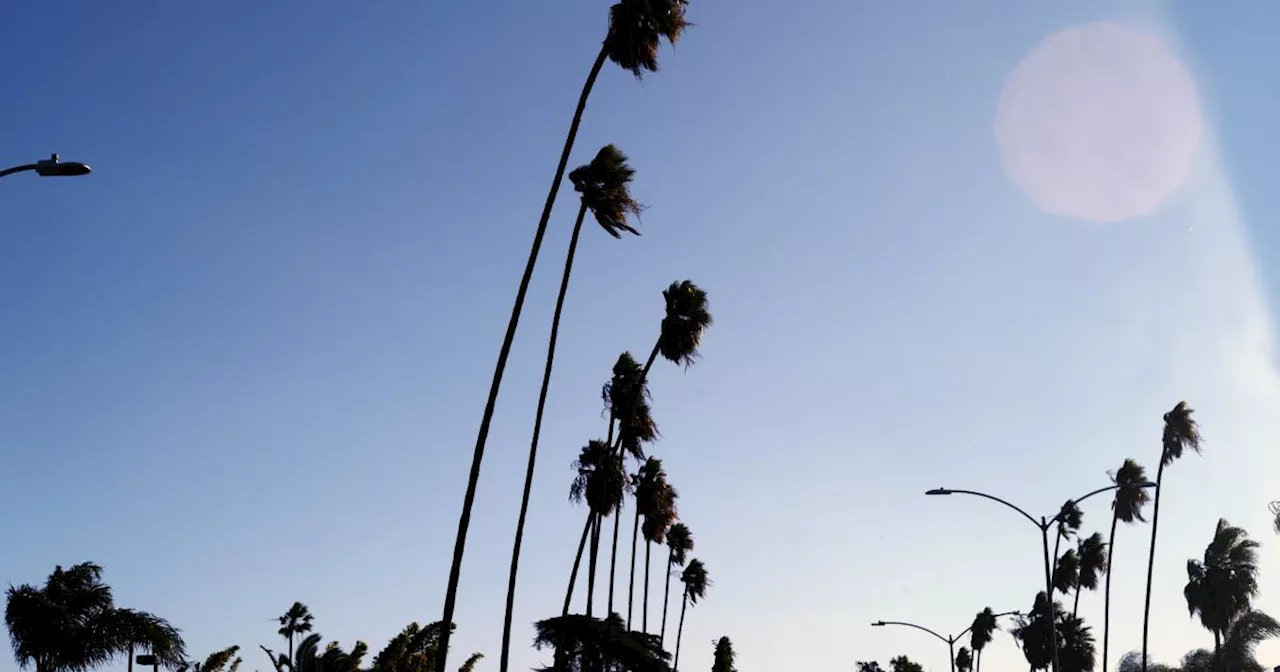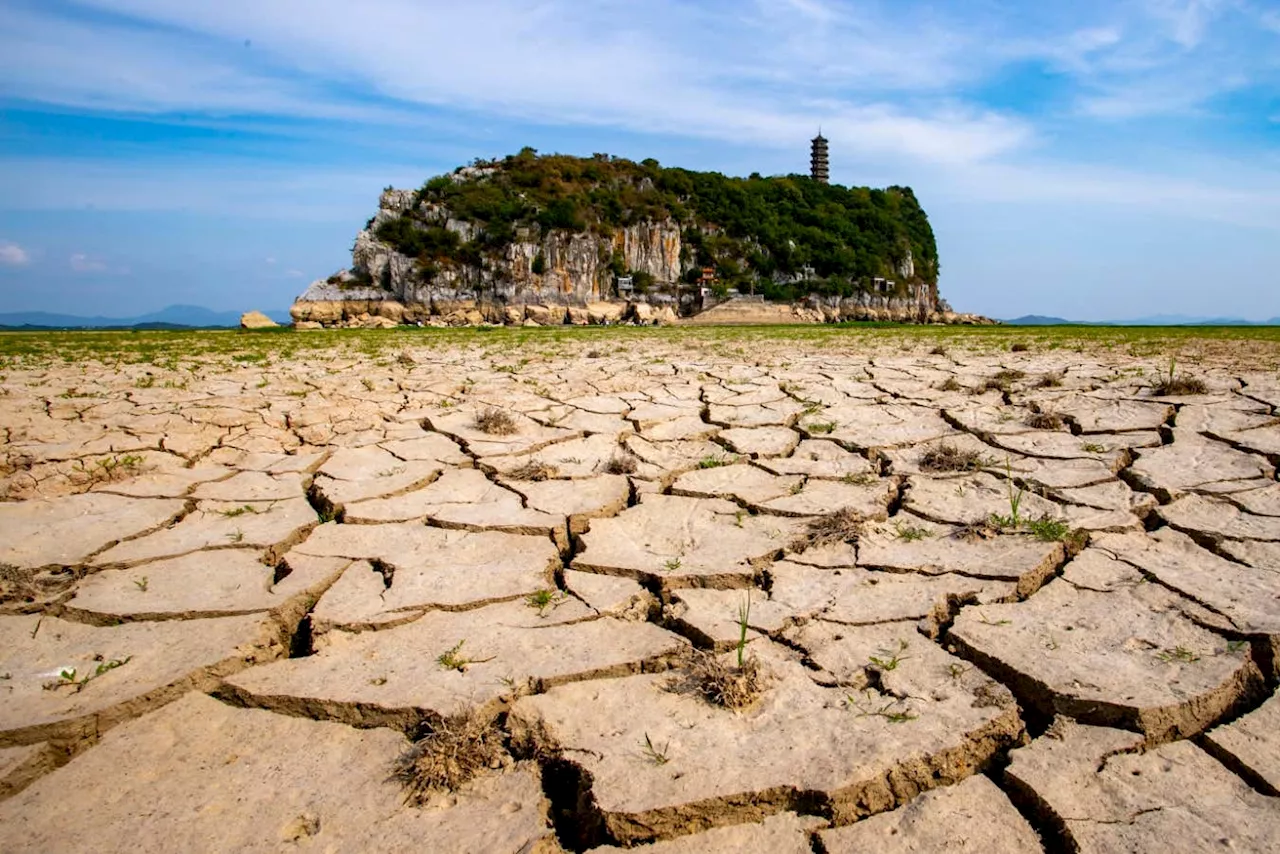A new study from the University of Cincinnati reveals that mosquitoes can survive prolonged droughts by relying on blood meals, potentially explaining why mosquito-borne illnesses don't always decline during dry periods. The study also highlights the adaptability of mosquitoes to changing environmental conditions.
Mosquitoes can survive prolonged droughts by drinking blood, which helps to explain why rates of mosquito-borne illness don't always decline in dry periods. Mosquitoes can endure extended periods without rainfall by relying on blood meals, according to biologists at the University of Cincinnati. This ability allows their populations to quickly rebound when rain finally returns.
Christopher Holmes, a postdoctoral researcher at UC, led a study investigating how two mosquito species known for transmitting diseases like malaria managed to survive nearly three weeks without rain. The findings shed light on why the incidence of mosquito-borne illness doesn't always decrease during droughts. While the overall mosquito population might be smaller, the surviving mosquitoes tend to bite more frequently. Furthermore, mosquitoes appear to be thriving in the context of climate change as winters become warmer, Holmes noted. Under favorable conditions, female mosquitoes consume blood from a host to support egg production. Approximately four days later, they lay their eggs and seek another blood meal to repeat the cycle. However, during droughts, mosquitoes supplement their initial blood meal by feeding repeatedly to stay hydrated in the days leading up to egg-laying. This can provide them with more opportunities to spread diseases such as dengue fever, Zika, or malaria, Holmes explained. 'There's a common assumption that during droughts, there are fewer mosquitoes and consequently, less opportunity for the spread of mosquito-borne illnesses,' said co-author and UC Professor Joshua Benoit. 'However, the modeling doesn't necessarily support this.' The study examined mosquitoes that had been genetically modified to impair specific senses, such as the ability to detect carbon dioxide, which is crucial for locating potential hosts. Researchers also impaired some mosquitoes' sensitivity to changes in humidity levels. They discovered that mosquitoes with impaired carbon dioxide detection did not survive dry periods because they couldn't locate hosts to bite. Co-author and UC doctoral student Souvik Chakraborty pointed out that even mosquito eggs possess remarkable resilience against prolonged droughts. 'Their eggs are resistant to drying out,' he said. 'They can survive sometimes for as long as a year.' He added, 'You'll get rainfall and the water level rises, and as soon as it touches the eggs, they hatch almost instantly.' Likewise, UC postdoctoral researcher and study co-author Oluwaseun Ajayi noted that mosquitoes in the genus Culex, found globally, can tolerate cold temperatures as well. 'They are often called a house mosquito,' Holmes added. 'They'll hide out in cellars or culverts. Before winter, they'll drink nectar and get really fat, building up these huge lipid deposits. And then when it gets warm enough, they'll quickly seek a blood meal, lay eggs, and die.' Lead researcher Holmes stated that his team's latest findings have deepened his appreciation for the remarkably long history of mosquitoes on Earth. The oldest mosquitoes date back to the early Cretaceous, 125 million years ago. They are an integral part of the food chain, feeding everything from fish to birds to bats and other insects. Benoit emphasized that the study demonstrates the resilience of these insects, which predate dinosaurs. 'They live almost everywhere except Antarctica,' he said. 'They tolerate a wide range of habitats.' He concluded, 'Understanding more about their biology is crucial to comprehending how they survive and reproduce.
MOSQUITOES CLIMATE CHANGE DROUGHT DISEASE SURVIVAL BIOLOGY RESEARCH
United States Latest News, United States Headlines
Similar News:You can also read news stories similar to this one that we have collected from other news sources.
 Floods, droughts, then fires: Hydroclimate whiplash is speeding up globallyHydroclimate whiplash -- rapid swings between intensely wet and dangerously dry weather -- has already increased globally due to climate change, with further large increases expected as warming continues, according to a team of researchers.
Floods, droughts, then fires: Hydroclimate whiplash is speeding up globallyHydroclimate whiplash -- rapid swings between intensely wet and dangerously dry weather -- has already increased globally due to climate change, with further large increases expected as warming continues, according to a team of researchers.
Read more »
 Southern California Faces Growing Fire Risk as Droughts PersistSouthern California is bracing for a resurgence of dangerous fire weather next week, fueled by a combination of strong Santa Ana winds and historically dry conditions. The region is experiencing one of its driest winters on record, with rainfall far below average. This dry spell, coupled with the expected wind gusts, creates a highly volatile fire risk.
Southern California Faces Growing Fire Risk as Droughts PersistSouthern California is bracing for a resurgence of dangerous fire weather next week, fueled by a combination of strong Santa Ana winds and historically dry conditions. The region is experiencing one of its driest winters on record, with rainfall far below average. This dry spell, coupled with the expected wind gusts, creates a highly volatile fire risk.
Read more »
 Severe droughts are getting bigger, hotter, drier and longerDroughts lasting multiple years are becoming more common and extreme around the globe, expanding by about 50,000 square kilometres annually
Severe droughts are getting bigger, hotter, drier and longerDroughts lasting multiple years are becoming more common and extreme around the globe, expanding by about 50,000 square kilometres annually
Read more »
 Genetically Modified Mosquitoes Offer Promising Malaria Vaccine DeliveryResearchers at Leiden University Medical Center, with support from the Bill & Melinda Gates Foundation, have developed a novel malaria vaccine delivery method using genetically modified mosquitoes. The study involved engineering malaria parasites to halt development in the human body, priming the immune system without causing full infection. Mosquitoes carrying these modified parasites then bit human volunteers in a controlled trial. The results demonstrated high efficacy, with eight out of nine participants receiving bites from mosquitoes carrying the GA2 parasite being protected against malaria infection.
Genetically Modified Mosquitoes Offer Promising Malaria Vaccine DeliveryResearchers at Leiden University Medical Center, with support from the Bill & Melinda Gates Foundation, have developed a novel malaria vaccine delivery method using genetically modified mosquitoes. The study involved engineering malaria parasites to halt development in the human body, priming the immune system without causing full infection. Mosquitoes carrying these modified parasites then bit human volunteers in a controlled trial. The results demonstrated high efficacy, with eight out of nine participants receiving bites from mosquitoes carrying the GA2 parasite being protected against malaria infection.
Read more »
 Researchers Funded by Bill Gates Turn Mosquitoes into ‘Flying Syringes’ to Deliver VaccinesSource of breaking news and analysis, insightful commentary and original reporting, curated and written specifically for the new generation of independent and conservative thinkers.
Researchers Funded by Bill Gates Turn Mosquitoes into ‘Flying Syringes’ to Deliver VaccinesSource of breaking news and analysis, insightful commentary and original reporting, curated and written specifically for the new generation of independent and conservative thinkers.
Read more »
 Genetically Modified Mosquitoes Show Promise in Malaria VaccinationA new study from Leiden University Medical Center demonstrates the effectiveness of using genetically modified mosquitoes to deliver malaria vaccines. The 'flying vaccinators' carry modified parasites that stimulate the immune system without causing illness.
Genetically Modified Mosquitoes Show Promise in Malaria VaccinationA new study from Leiden University Medical Center demonstrates the effectiveness of using genetically modified mosquitoes to deliver malaria vaccines. The 'flying vaccinators' carry modified parasites that stimulate the immune system without causing illness.
Read more »
